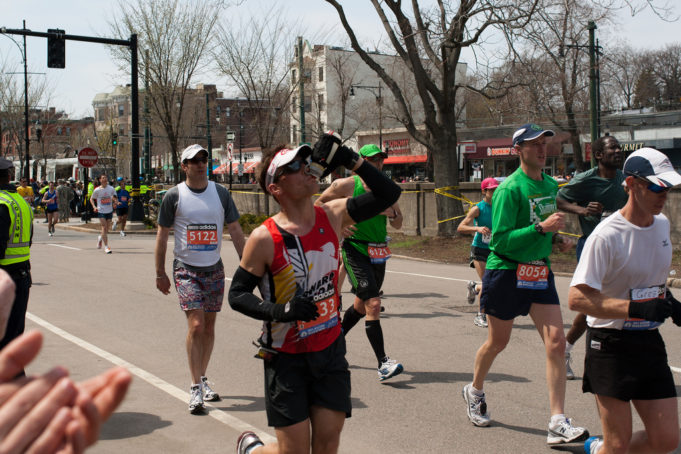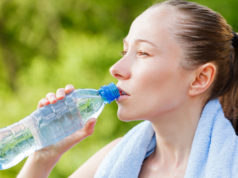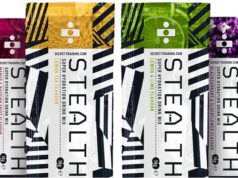Race nutrition seems to be a subject very much in demand, so in my first blog for UKRunChat, I will concentrate on helping you achieve optimal nutrition for your event. My aim is to give you the science and help you interpret it into user-friendly information. As a runner myself, I know science doesn’t always translate into reality, but it’s a good place to start. If you want to skip the details, go straight to end of the blog for my quick tips.
While training for an event, many runners are mindful about the need to practice what they eat and drink, but for many race day nutrition is a last minute panic of “how much should I drink” or “when should I take that first gel?”. During a race there are two important factors to consider: carbohydrate consumption and hydration (October’s blog). Practice doesn’t always make perfect, but you need to work out the balance between taking enough and not over doing it. Putting science and the guidelines aside for a minute, it is vital to remember sports nutrition is individual. I’ve run many a race when I’ve looked enviously at some runners who can happily rely on the unknown sports drinks supplied at aid stations and those in ultras that can see away a bowl of pasta and sponge cake and carry on with no problems. The most important thing is to find out what works for YOU, make a PLAN and PRACTICE it.
[restrict userlevel=”subscriber”]
Why Carbohydrate?
It is well documented that the main cause of fatigue in exercise over 60 min is diminishing energy stores. Our body mainly uses carbohydrate and fat for energy. Although we use a mix of both energy sources, carbohydrate is the preferred source as it is more readily converted to energy than fat. We generally have a small amount of glucose circulating in the blood, with most being stored in the muscle and liver as glycogen. However, herein lays the problem. We only have enough stored carbohydrate to last about 90 min of exercise, compared to fat where energy stores should theoretically power a runner for at least 1300kms! Some may be thinking, “rely less on carbs and become more proficient at using fat for energy”, a growing trend in the Ultra community and a debate and blog post in itself. However, the importance of carbohydrate in exercise performance has been reported as early as 1939 (1), and one should not ignore the endless number of studies since that prove carbohydrate taken during prolonged exercise increases time to exhaustion. In simple terms, when glycogen stores become depleted, your muscles and brain run out of fuel, making us feel exhausted and drained. If we take carbs when on the move we minimise this depletion by keeping the blood sugar level up, keeping stores a plenty and energy levels flowing.
When to fuel
Most of us associate fuelling during runs with the marathon and further. In general this is right but rather than length of run, focus needs to be time on feet. Studies show a performance benefit when taking carbs during exercise lasting longer than 60 mins. This is the point at which depleting glycogen stores start to affect performance, therefore extra fuel keeps blood glucose levels maintained. With this in mind, it is important to maintain your energy levels as early as possible in the race. If you are waiting to take your first gel or drink until an hour into your run, your glycogen stores will already be getting low. The key is to start early at about 20 minutes into the race. Although you won’t necessarily be feeling low on energy, topping up the tank from the word go will only benefit you later in the race where fuelling may become harder due to fatigue and potential stomach problems.
How much to fuel
The American College of Sports and Medicine give a general recommendation to take between 30-60g of carbohydrate per hour during prolonged exercise (2). These recommendations are based on the fact that the body cannot absorb more than 60g of carbohydrate per hour (1g/min) when ingesting a single carbohydrate source such as glucose. However, during further prolonged exercise (those of you that run longer than 2.5hrs), if a “multiple” or “dual” carb source is consumed such as maltodextrin:fructose together, we can utilise up to 90g/hr instead of 60g/hr with a single source carb. This is because the two different types of carbs (maltodextrin + fructose) use different intestinal transporters for absorption hence increasing carbohydrate delivery and use. In reality though, this is a large amount of carbohydrate and probably not managed by many, but you can train your gut, so practice in training will see what you can tolerate. In light of all of this evidence, does it mean that if you can’t manage these amounts all is lost? The answer is no. A study by Maughan et al (3) found an intake as low as 16g/hr improved performance by 14% compared to water intake alone. If you find you really struggle to tolerate anything apart from water, evidence has suggested that even rinsing the mouth with a carbohydrate drink (without swallowing) could trick you brain into thinking it’s receiving energy and have an improvement on your performance (4). It can’t do any harm to try!
Examples of how to reach your hourly carb goal
30g /hr – 1 energy gel or 1 energy bar + small amount of sports drink (250mls)
60g/hr – 3 energy chews + bottle of sports drink (500mls)
90g/hr – Bottle of sports drink + energy bar + 1 energy gel (all dual carb source)
What to fuel with
This is where individuality rules! First up is to experiment and see what works for you. Gels, energy chews, sport drinks, bars, real food…it is personal choice and down to tolerance and taste. Sports products are designed for fast absorption and ease of use but some people dislike them and find real food is the way forward. Sports drinks tick both boxes of fuelling and hydration and are a good base for your fuelling plan. If you are doing a race that provides drinks and food, find out what they are and train with that specific brand. This may mean that you can rely on the pit stops rather than carrying your own. Avoid anything that has high levels of protein or fibre, such as some energy bars, as these will slow down the absorption rate of your needed carbohydrate. If you are doing ultras, you can’t just eat sweet, high energy snacks for hours on end so, although there is no evidence that protein during exercise will improve your performance, it will keep hunger at bay, give you variety and hopefully keep your appetite stimulated. Someone once said to me, you know you are a real ultra runner when custard and peanuts are your fuel of choice.
Examples of Single and Dual source carbs
Single source Carbs (up to 60g/hr)
Gel – SIS Go Isotonic
Drink – Isotar – Hydrate and Perform
Chews – Cliff Shot Bloks
Dual Source Carbs (up to 90g/hr)
Gel – Torq
Drink – High 5 Energy Source
Chews – PowerBar Power Gel Shots
Practical Top tips
• The science provides the guidelines but be flexible, as no matter what the science says, you are more constrained on the day by what your stomach dictates.
• Find out what products are available on the course, training with them may mean you can rely more on check point nutrition.
• Use your long training runs to conduct experiments of how much and what type of fuel you can tolerate.
• To start, trial 20-30g carbohydrate per hour, little and often of either single or dual source carbs and aim to work up to 60g/hr….remember your gut is trainable.
• If running 2.5 hrs + and you have a stomach of steel, remember to reach 90g/hr you need to be using only “dual” source carbs to reach this amount (see table 1).
• Set your watch time to bleep every 20-30 mins to remind you to fuel.
• Start fuelling early whilst the gut is fresh and absorbs carbs easily, things might not be so easy a few hours into the race!
• The Golden Rule – don’t do anything new on race day no matter how tempting they may look.
References
1 Krogh A, Lindhard J. The relative value of fat and carbohydrate as sources of muscular energy. Biochem J. 1920;14:290–363.
2. Christensen EH, Hansen O. Arbeitsfa ̈higkeit und Erna ̈hrung.Scand Arch Physiol. 1939;81:160–71.
2 Sawka MN, Burke LM, Eichner ER, American College of Sports Medicine position stand, et al. Exercise and fluid replacement. Med Sci Sports Exerc. 2007;39:377–90.
3 Maughan RJ, Bethell LR, Leiper JB. Effects of ingested fluids on exercise capacity and on cardiovascular and metabolic responses to prolonged exercise in man. Exp Physiol. 1996;81:847–59.
4 Carter, J, A E Jeukendrup and DA Jones (2004a) The effect of carbohydrate rinse on 1-h cycle time trial performance Med. Sci. Sports Exerc. 36:2107-2111[/restrict]







